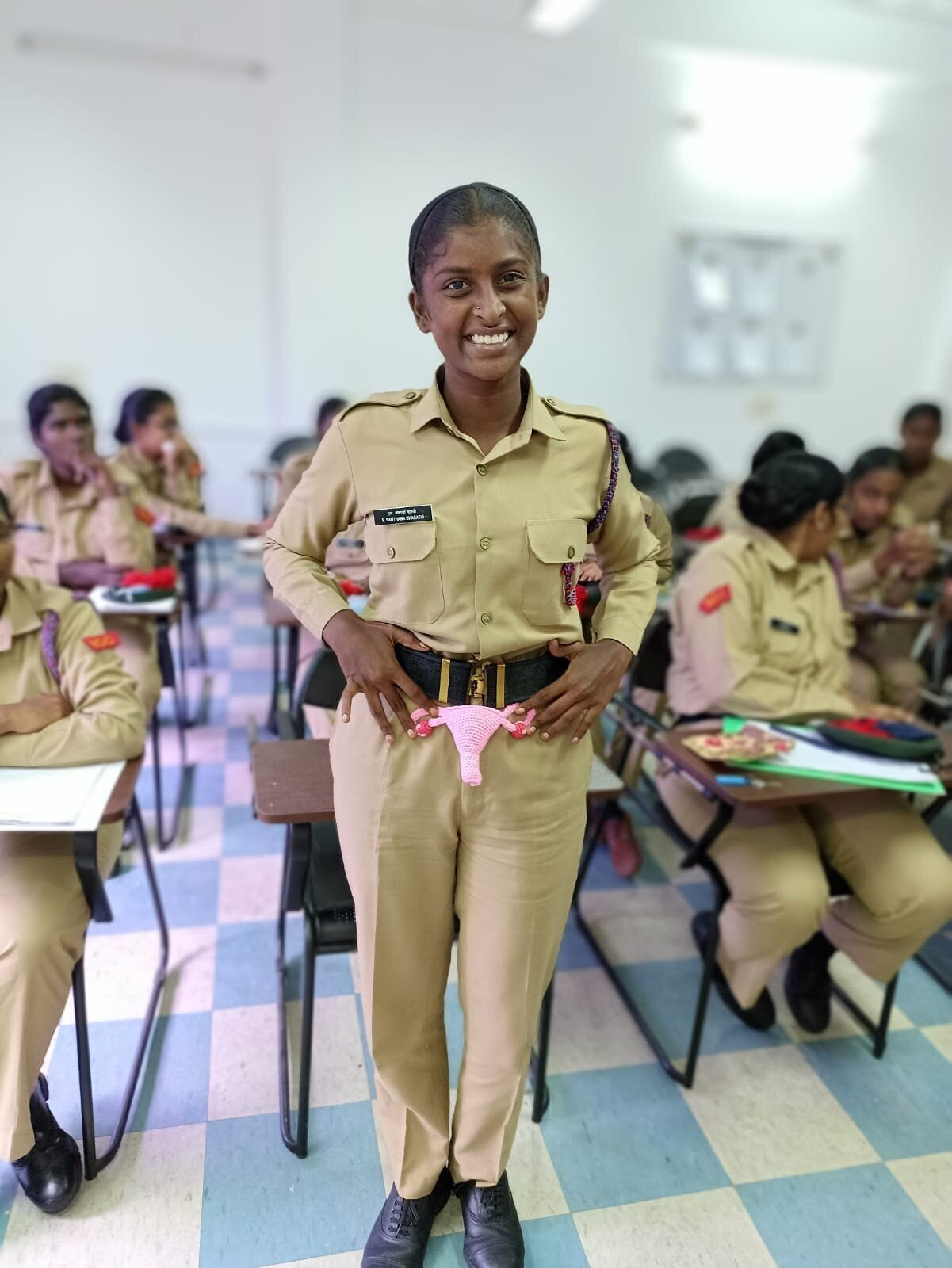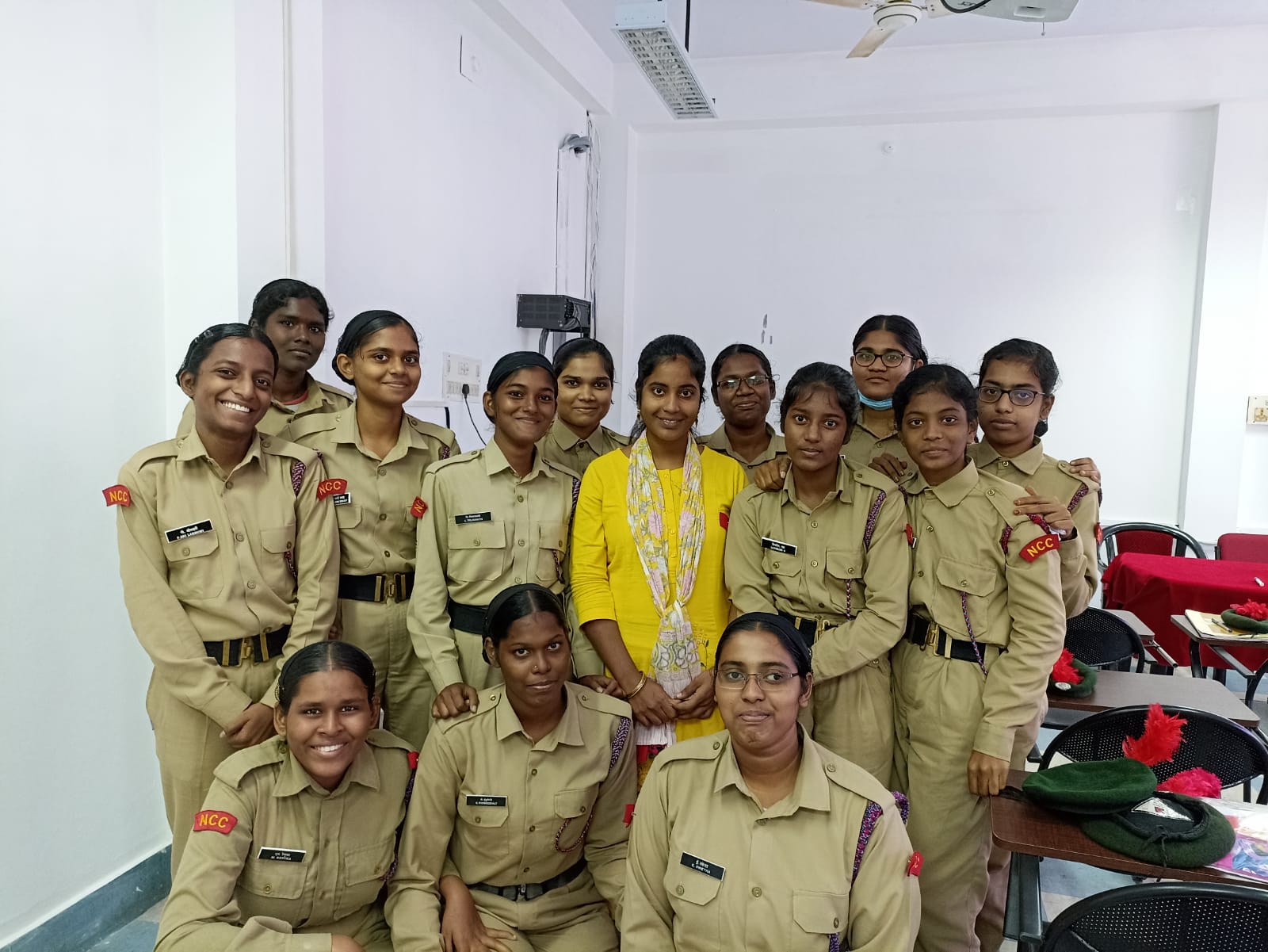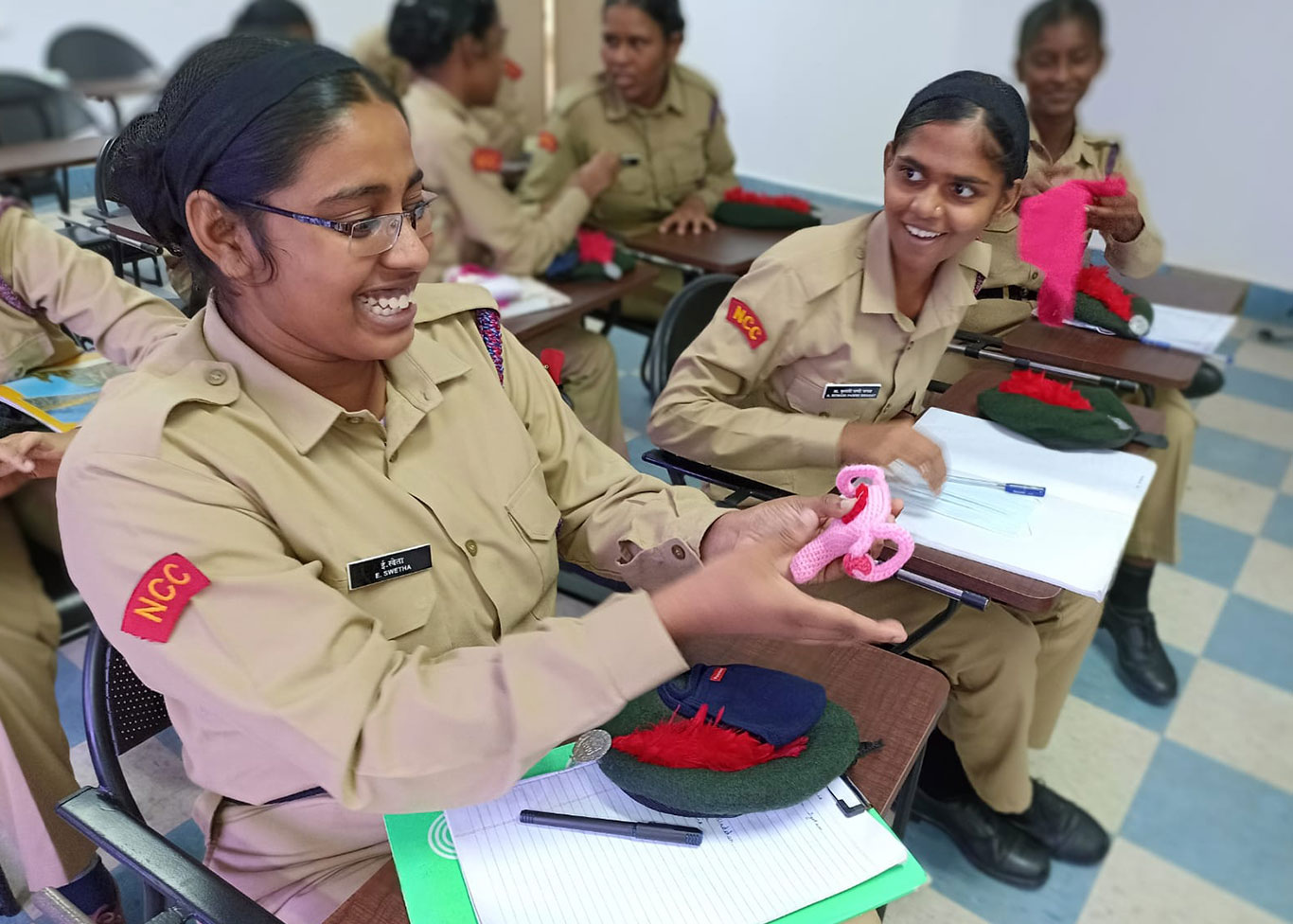|
The phasing of the training programme was designed to build the capacity and confidence of the cadets in manageable steps. Training sessions were tailored to be interactive, meaningful, and impactful. The cadets were trained on how to create a safe space, followed by a training on female anatomy and the menstrual cycle. They learned how to convey key concepts about menstrual health and hygiene practices. The cadets were then guided in how to facilitate a menstrual product analysis and facilitate a reflection on cultural practices around menstruation.

Post the training, the cadets were asked to conduct a menstrual health session with their close friends, neighbours and families so as to become more acquainted with the process of delivering a session. The cadets then visited Eco Femme to share their experiences as budding facilitators and received further coaching and guidance. The culminating moment was when they conducted a full 3 hour session with young girls in schools putting into practice all that they had learned about how to deliver a comprehensive menstrual health educational session.
The programme has been a success in terms of its outreach and impact, despite the fact that the activities were limited by the pandemic. So far, more than 800 students have attended the MHM sessions offered by the 23 cadets across Pondicherry. Though the primary agenda of the collaboration was to build a group of peer educators, in the bigger picture, the programme has helped to train young women to become MHM educators, who can serve the society for the many years ahead in many diverse social and geographical areas.
.
.
By Lakshmy Das,
Our Pads for Sisters Coordinator.
On the picture below, we have Kalvi (in the center) and some of the cadets
↓↓↓
|


